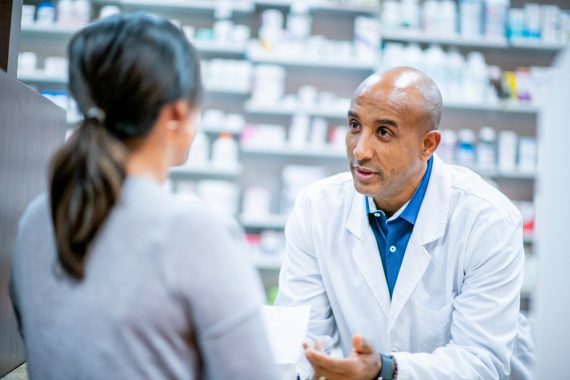Pressures continue to mount on NHS services across the country. The lasting impacts of the pandemic have been exacerbated by more recent discontent from healthcare staff around working conditions and pay.
Strikes have been ongoing for months and this has further delayed thousands of scheduled appointments and procedures. Elsewhere, members of the public are increasingly voicing their frustration about difficulties booking GP appointments.
With an ever-growing backlog of appointments and procedures, other providers in primary healthcare can take some of the strain away from overburdened GP and hospital practices. What role can pharmacies play?
When should people see a pharmacist instead of a GP?
One of the best ways that people can relieve the burden on doctors is to understand when they can be treated by a pharmacist or another medical professional without booking an appointment with their GP.
Minor ailments such as colds, coughs and rashes can usually be treated with over-the-counter medicines offered in pharmacies. These professionals should also have the skills to identify more serious symptoms and conditions that may warrant a visit to a GP, so they’re often the best first point of contact.
Going to a pharmacy first can free up GP appointments for other patients with more serious illnesses and it’s much more cost-effective for the NHS to facilitate. For minor health issues, it’s a win-win for both sides if treatment can be provided more quickly and at a lower cost to save money for investment elsewhere in the healthcare system.
What can pharmacies help with?
Many people aren’t aware of how pharmacists may be able to help them. They are an integral part of the healthcare system and have all the necessary qualifications and credentials such as pharmacy insurance to provide the expected standard of service. Their competencies include:
- Medication reviews
- Dispensing of NHS prescriptions
- Health-related advice and guidance
- Treatment of minor illnesses and ailments
- Chronic disease management
- Vaccinations
- Weight management services
- Blood pressure, cholesterol and blood sugar testing
Pharmacies can contribute significantly to reducing the burden on other NHS services, but it partly relies on the public understanding the urgency and nature of their conditions. Urgent care services such as 111 and A&E should only be used in emergencies. GPs can treat and arrange the necessary consultations for more complex or serious issues. Pharmacies should the first port of call in most other circumstances.







